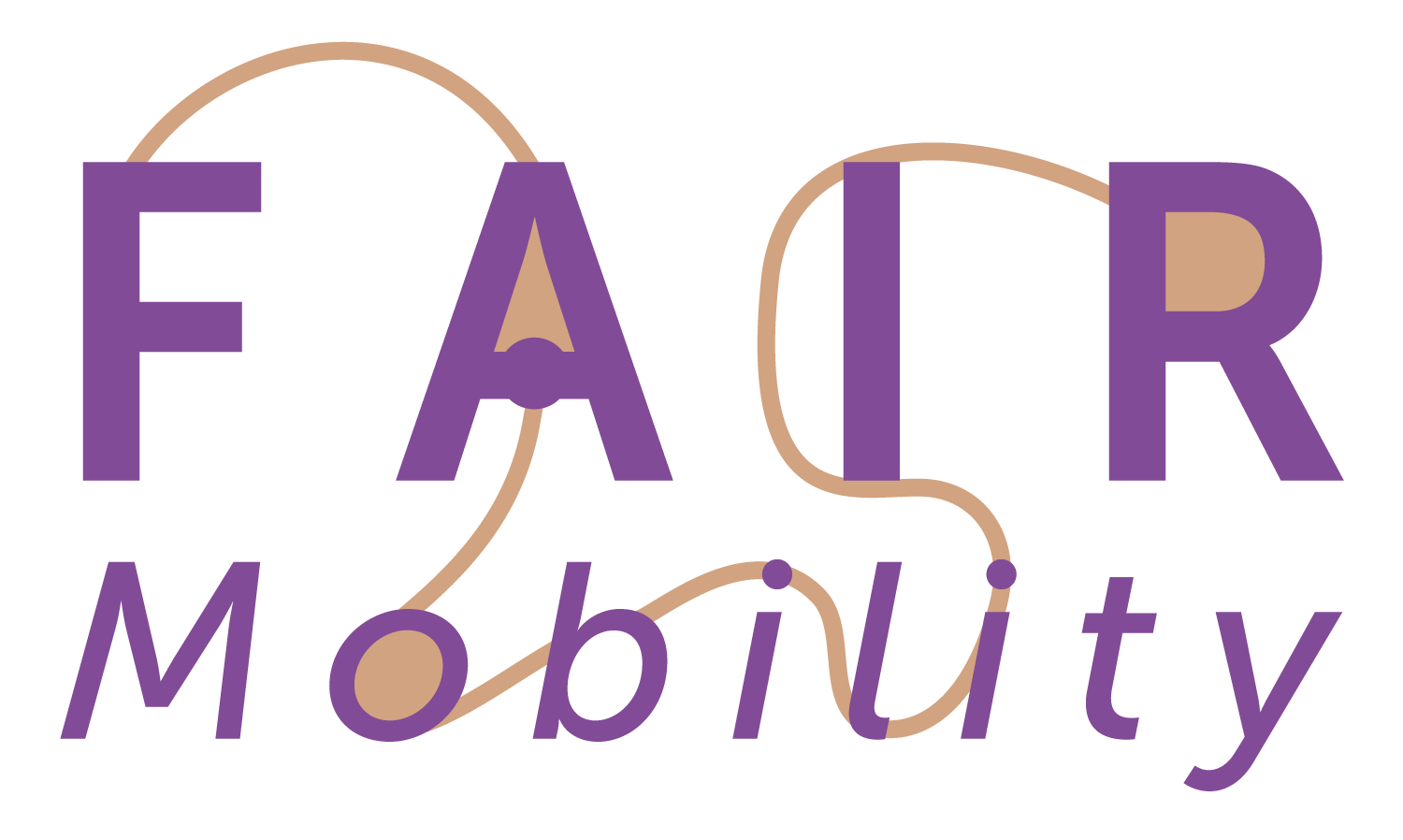International
cooperation
Fair Mobility is an innovative project where international, inter- and transdisciplinary collaboration leads to innovative co-creation. The added value therefore lies in the discovery of new ideas to frame future sustainable urban mobility plans in a more user-centred way. The consortium consists of seven partners from Austria, Italy, Germany, Romania and France with two pilot municipalities for implementation.
The two pilot cases are Ebensee in Austria and Creil in France.
International Consortium Meeting, Munich
Photo courtesy of Maya El Khawand
Creil
France
… is an ancient industrial municipality located in the Paris region, about fifty kilometers from Paris. It is both strongly polarised by the metropolitan area and serves as an urban pole in its own regional environment. Its population is young, multicultural and has become much poorer since the de-industrialization in the 1970s. Creil provides social housing for many of the unqualified people working in the peripheral area of Paris. Changing the town’s image is one of the goals of local development policies, including a program to revitalize the town center and the train station. The municipality and a variety of local associations are also committed to different measures and initiatives in favor of equality and the fight against discrimination.
Creil is an “urban municipality” as it is part of the dense or intermediate density municipalities. It belongs to the urban unit of Creil, an intradepartmental conglomeration of 23 municipalities and 123,989 inhabitants in 2017, of which it is the central city (30,000 inhabitants).
In addition, the commune is part of the catchment area of Paris, of which it is a commune of a secondary pole.
It is located in the North of Ile-de-France Region, 25 minutes away from Paris.
The municipality concentrates both a large number of jobs (mostly occupied by workers coming from outside) and a high proportion of low-income inhabitants, of which many are occupying jobs in the outer suburbs of Paris. It owes its attractiveness to its very good rail links and the affordability of its housing.
Nevertheless, inhabitants and more specifically women are suffering uneven access to daily amenities, in a territory which is well connected to Paris and other regional cities, but badly well served by local public transport and mobility offer.
A summary of the case, and the objectives: why this case, what makes it unique, and what are the expected outcomes?
Ebensee
Austria
…is located in the Austrian region Salzkammergut and shares characteristics with Creil, such as a high proportion of low-income inhabitants and more affordable housing compared to the neighbouring municipalities. The population relies highly on individual transport due to urban sprawl. The municipality lacks local public transport covering the “last mile”.
Furthermore, smaller railway stations have been closed in recent years, adding to the challenge of accessibility and mobility.
Fair Mobility will attempt to work with the locals towards improving mobility and accessibility in Creil.
Ebensee is embedded in between touristic towns and villages, with a high proportion of low-income households in affordable housing complexes.
As a former industrial area, the municipality is shrinking. Despite the good rail connection, the urban sprawl development in the last decades, challenged and limited public mobility in the area.
With the national employment strategy 20.000, the municipality experimented with the BIS mobility, where unemployed people over 50 years could be trained to provide lifts for socially in need people. However with the change of the government in 2017, the employment strategy was stopped, with no alternative being developed since.
The activities of Cultural Capital Salzkammergut are a new opportunity to address the mobility and access issue and to experiment with mobility programs, which can be sustained and continued, even after the cultural capital year.
The municipality itself is too small and does not have the capacity to develop sustainable and fair mobility concepts by itself, but it is very open to finding new ways with the support of the consortium.
Currently, Ebensee is a financially highly burdened municipality and depends on hardship compensation by the federal state of Upper Austria.
As the fair mobility project, we will be conducting local workshops and initiate dialogue with local residents to ensure a bottom-up development process.
A summary of the case and the objectives: what makes it unique, and what are the expected outcomes etc.
Still © Tourismusburo-Ebensee, Spengler
Still from Creil Workshop
Our
activities
Each case is unique, and serves as a living lab, where ideas are developed, exchanged and implementesd. Here is a list of our activities and results, including upcoming ones:
Fair Mobility Activities
In celebration of International Women’s Day on March 8, 2024, wonderland, the Women’s Forum Salzkammergut, and the community of Ebensee joined forces to kickstart the FairMobility project in Austria. The first workshop aimed to address safety concerns and promote inclusive urban planning by inviting women* of all ages and backgrounds to identify hazards and set collective goals for Ebensee. Through prioritizing active mobility and community engagement, FairMobility strives to create a more accessible and equitable environment for all residents. Read more here.
The Ebensee Stroller march took place in July of 2025, reclaiming the streets for the most vulnerable, while helping build local connections.
Read more about this activity, here.
On August 28th, brilliant summer weather sets the perfect stage for Ebensee’s inaugural Main Street Festival (Hauptstraßen-Gaudi). Under the motto “Share Street Space Fairly,” the town’s main thoroughfare closed to motorized traffic for two hours, transforming from a car corridor into a vibrant community gathering place where people truly matter more than vehicles.
Read more on this community event here.
